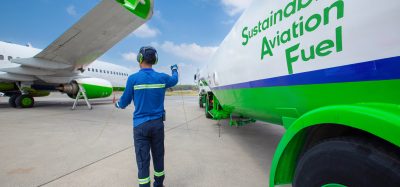IATA and AIA assesses the financial implications of Net Zero transitions
- Like
- Digg
- Del
- Tumblr
- VKontakte
- Buffer
- Love This
- Odnoklassniki
- Meneame
- Blogger
- Amazon
- Yahoo Mail
- Gmail
- AOL
- Newsvine
- HackerNews
- Evernote
- MySpace
- Mail.ru
- Viadeo
- Line
- Comments
- Yummly
- SMS
- Viber
- Telegram
- Subscribe
- Skype
- Facebook Messenger
- Kakao
- LiveJournal
- Yammer
- Edgar
- Fintel
- Mix
- Instapaper
- Copy Link
Posted: 12 July 2023 | International Airport Review | No comments yet
IATA and the Aviation Impact Accelerator (AIA) hope to accelerate the aviation sector’s transition to net-zero CO2 emissions by 2050.


IATA partners with aviation impact accelerator to assess the financial implications of net zero transitions
The International Air Transport Association (IATA) and the Aviation Impact Accelerator (AIA), an international industry-academia partnership based at the University of Cambridge, announced a collaboration. IATA and AIA hope to accelerate the aviation sector’s transition to net-zero CO2 emissions by 2050.
The two organisations will assess the financial implications of reaching aviation’s 2050 net zero CO2 goal. Building upon existing work, this collaboration will support the development of scenario-based tools to help airlines analyse and evaluate different decarbonisation pathways.
The purpose of this collaboration is to support better-informed decisions by airlines and policy-makers in the transition to net zero. The collaboration will set a solid foundation for IATA and AIA to develop a wider, long-term partnership.
AIA is an international group of experts drawing on a broad range of expertise convened by the University of Cambridge. Its aim is to accelerate the journey to net zero by developing evidence-based tools that allow people to understand, map, and embark on the pathways towards sustainable flight. Over the last three years a world class network of experts has been assembled and the underlying system modelling capability developed.
“We are excited to launch this new collaboration between AIA and IATA, investigating realistic pathways for aviation’s transition to net zero emissions by 2050. IATA has a strong track record of fostering cooperation between airlines and other stakeholders and driving change in the sector. We believe that by bringing this together with AIA’s unique modelling capability we have an opportunity to unlock change,” said Prof. Rob Miller, Director of the Whittle Laboratory, University of Cambridge, and AIA lead.
‘’We are delighted to join forces with the Aviation Impact Accelerator with a view to enhance our understanding of the many potential pathways to achieve air transport‘s sustainable future. The development of different technological pathways will have an influence on the long-term outlook of our industry, and our collaboration will notably explore this intersection,‘’ said Marie Owens Thomsen, IATA’s Senior Vice President Sustainability and Chief Economist.
As part of the future collaboration, AIA and IATA also aim to collaborate on the future development of IATA’s Recommended Practice Per-Passenger CO2 Calculation Methodology, amongst other areas of work. Used in combination with verified airline operational data, the methodology provides the most accurate calculation results and transparency to everyone interested in understanding the carbon footprint from flying activity.
Related topics
Related organisations
Aviation Impact Accelerator (AIA), International Air Transport Association (IATA), University of Cambridge


















